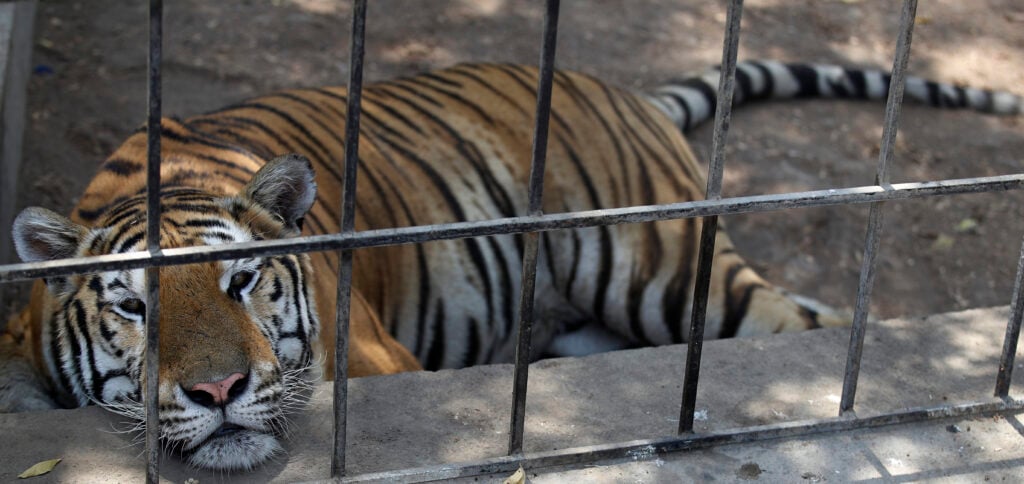The thermometers in the Iraqi capital exceeded this temperature this Monday (14) for the second day in a row, a torment for humans and animals alike.
ADVERTISING
Siberian tigers, whose natural habitat is the Russian Far East, tend to live in cold places, “where temperatures can reach minus 20ºC”, explains Wassim Sarih, veterinarian at the only zoo in Baghdad, located in the city center.
The Iraqi capital, like the rest of this Middle Eastern country, suffers an extreme heat wave in these weeks of August. According to the UN, Iraq, which is experiencing its fourth consecutive year of drought, is one of the five countries most exposed to climate change in the world.
O zoológico de Bagdá possui 900 animais, entre eles leões, ursos, macacos e pássaros exóticos. Para diminuir a sensação de calor entre eles, a administração colocou ar-condicionado em frente às jaulas dos leões e lagoas para que os tigres ou ursos tomem banho.
ADVERTISING
These conditions can be great for animals that live in warm habitats, “but we don't have cages for animals that are used to the cold,” explains Sarih.
“They are models from the 1970s,” admits Haider al Zamili, director of the zoo, who must take care of the well-being of animals with few resources.
Lower life expectancy
As a result of these conditions, “our animals have a shorter life expectancy compared to other zoos,” laments Sarih.
ADVERTISING
Siberian tigers at the Baghdad Zoo do not live more than “17 or 18 years” due to heat exhaustion, while in other zoos “they have a life expectancy of between 20 and 25 years”, says the veterinarian.
Sarih points out that four bears, lions and birds died last year, half of them “because of climate change”.
Karrar Jassem is one of the few employees present at the zoo during these hot days.
ADVERTISING
He feeds the animals and cleans their cages in exchange for a modest salary of 250 dinars per month, just over US$160 (R$782, at current exchange rates).
Employees' salaries are “very low and do not correspond to the dangers they face, such as possible injuries or joint pain”, criticizes Sarih.
The veterinarian says he alerted Baghdad City Hall, which owns the park, about the situation, but “they didn't listen to us”.
ADVERTISING
Given the precarious situation, Sarih predicts that “in the near future” the zoo will have no option but to close: “Everyone will lose out.”
Read also
* The text of this article was partially generated by artificial intelligence tools, state-of-the-art language models that assist in the preparation, review, translation and summarization of texts. Text entries were created by the Curto News and responses from AI tools were used to improve the final content.
It is important to highlight that AI tools are just tools, and the final responsibility for the published content lies with the Curto News. By using these tools responsibly and ethically, our objective is to expand communication possibilities and democratize access to quality information. 🤖




